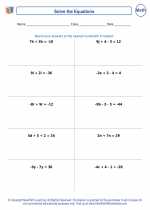Zero Exponent Study Guide
Explanation of Zero Exponent
When a number is raised to the power of zero, the result is always 1. This is a fundamental property of exponents in mathematics. For example, if we have the expression a0, where 'a' is a non-zero number, the value of a0 is always 1. This rule holds true for any non-zero base raised to the power of zero.
Examples
Example 1: 30 = 1
Example 2: 100 = 1
Example 3: (1/2)0 = 1
Properties of Zero Exponent
Property 1: Any non-zero number raised to the power of zero is equal to 1.
Property 2: 1 raised to the power of zero is also equal to 1.
Study Tips
1. Remember the fundamental rule: Any non-zero number raised to the power of zero is always 1.
2. Practice solving problems involving zero exponents to reinforce your understanding.
3. Pay attention to the base and the exponent - this will help you correctly apply the rule for zero exponents.
Conclusion
Understanding the concept of zero exponents is essential in algebra and higher-level mathematics. Remember that any non-zero number raised to the power of zero is always 1, and practice applying this rule to different examples and problems.
.◂Math Worksheets and Study Guides Eighth Grade. Linear equations
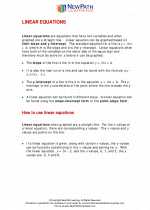
 Worksheet/Answer key
Worksheet/Answer key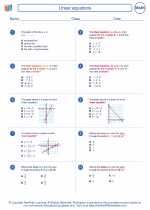
 Worksheet/Answer key
Worksheet/Answer key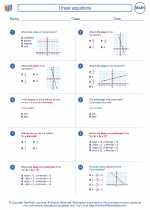
 Worksheet/Answer key
Worksheet/Answer key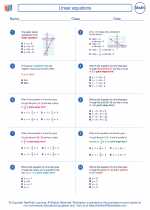
 Worksheet/Answer key
Worksheet/Answer key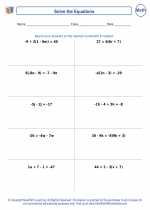
 Worksheet/Answer key
Worksheet/Answer key
 Worksheet/Answer key
Worksheet/Answer key